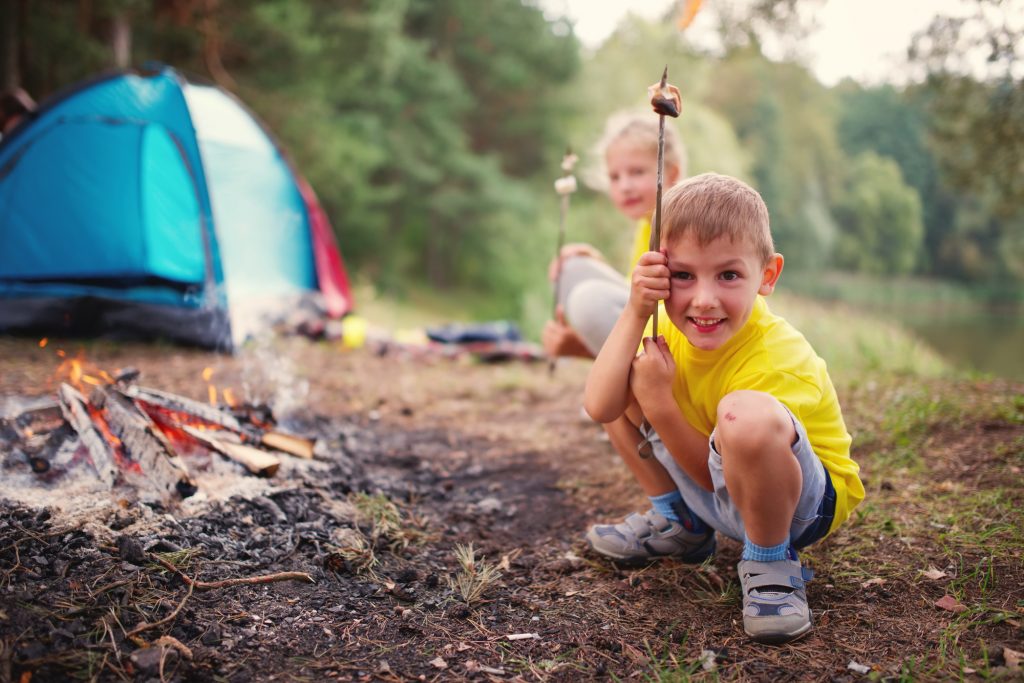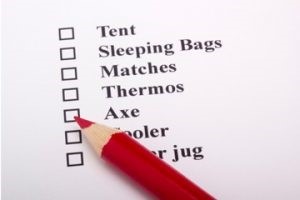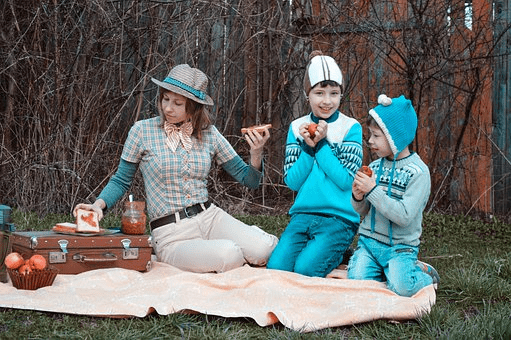23 Beginner Camping Tips for Families With Kids
0 View
Share this Video
- Publish Date:
- March 3, 2022
- Category:
- HOW TO -
- Video License
- Standard License
- Imported From:
- Youtube
Tags
Sponsored Area
TODAY'S ADVENTURE
23 Beginner Camping Tips for Families With KidsWhen you plan to camp with your kids, gone are the days of throwing the tent and sleeping bags in the car and hitting the road ten minutes later. When planning to camp with kids, it is best to be prepared. There are a variety of ways to do this, and you will be glad that you planned ahead. Check out these camping tips for families with kids.
While you may have an intense love of the outdoors and travel to your favorite camping destinations, many kids today find it difficult to view the outdoors as an exciting alternative to their movies, video games, and cell phones. However, traveling and developing a positive relationship with the world around them gives kids and teenagers the chance to grow in ways they otherwise wouldn’t.
So to help get your teens outside and enjoy the great outdoors with you, here are some beginner camping tips for helping your kids get out of your house community and into a camping setting without dealing with teenage sulking. Some of the top things that you can do the next, you want to go family camping with teenagers and kids. In this post, you will learn about family camping.

Tips for Camping with Kids
Plan Ahead
Rule number one of family camping: always let somebody know where you are. There have been too many incidents in which overzealous and even experienced campers go out into the wilderness with high ideas and little preparedness. Tell a few people where you are and where to find your destination on the map. Meals and their ingredients should be itemized, or at least taken note of. This determines how much you’ll be packing.
This becomes incredibly important if you’re packing food on your back and carrying it throughout the trip. Plan out what you’ll be wearing as well. It’s tempting to always have on your cool new gear. Check the weather and always bring extra socks (in a plastic bag, at that).
Let Them Do The Planning
When the right weekend comes around for a camping trip, a great way to get your older children or teenagers excited about the prospect of spending some time outdoors, according to Tanushree Bubna, a contributor to CampingRoadtrip.com, is to give them the job of planning some or all of the weekend. If you tell them where you’re going when you’re leaving, and each activity they’re going to have to do while away, you’re likely to get at least a little backlash. But if you allow your teen the freedom to choose what area to camp in, what meals to prepare, or what activities or games to do, you may find that they get a lot more excited about traveling to a campsite with their family.
Stay Organized
Camping with kids can be a hectic endeavor. You’ll have to bring a lot more than you ever had when you were just camping with your spouse. To make sure the trip runs smoothly, have a plan to stay organized.
Write a list of everything you need to bring camping and check things off as you pack them.
Using clear, plastic bins is a great way to pack for your trip. You can keep things together in the same container, and you’ll be able to see what’s in it without having to open it up and rummage through.
You may also want to bring a designated bag for all the dirty clothes to avoid them getting thrown into the suitcase (or bin) with all the clean clothes.
Test It Out First
Kids and camping don’t always go together well. If you’re not sure how your child would react to being out in the woods for an extended period, the best thing you can do is give it a test run.
You may try to camp in the backyard or send your kids to a summer camp, like Camp Hobbit Hill, to see how they react to the outdoors. A day camp that focuses on outdoor skills can be a great option to ease them in!
Develop a Camping Checklist

A camping checklist is helpful in general, but when camping with your kids it is imperative. Camping requires bringing a lot of different things, and while it may be possible for you as an adult to do without a forgotten item, it will not necessarily be the case for your kids. Put together a list of things you need for camping and go through it while you pack. Particularly if you are camping in a remote location, it may not be easy to replace the missing item.
Plan a Menu
Food is important, and it is hard to have a good attitude for a new experience when hungry. While it may not be a big deal for adults, it will be a big deal for the kids. Make sure you have meals planned that you are comfortable they will eat. And make sure that you have all the required ingredients.
Bring Your Camping Food
Making food on-site may be enjoyable but may take a long time to prepare. Bringing ready-made foods such as peanut butter, canned beans, and granola bars are great alternatives for quick food and kids love them. They are light, have prolonged expiry dates, and are simple to pack. You can grab and eat them without needing to set up a fire.
Campers also need to bring an empty bottle of drinking water. Make sure to replenish your body with plenty of water when doing extreme outdoor activities.
Remember that you will be outdoors and the kids will likely be more active than usual. They will get hungry, and snacks will help with that AND help them keep their energy up. High protein snacks like nuts are great for camping and hiking.
Make Sure They Know the Camping Safety Rules
One of the most important tips for camping with kids is to tell them about camping safety rules.
There are a lot of things that could go wrong when camping, so set some ground rules a few days before the trip and go over them on the drive over. Some of your rules may include, “don’t wander away,” “don’t go near the river without a parent,” and “don’t approach wild animals.”
Don’t Forget the First Aid Kit

The first aid kit is important even when camping without kids. But when camping with your kids, you will definitely want it easily accessible. There will be those very minor “injuries” like a scratch and the only thing that will calm your child down is a band-aid. No need to argue; by all means, here is your band-aid.
Even if you go over the rules, again and again, your children may get hurt. Maybe they tripped or scraped their arm on a branch – accidents happen!
But when camping with children, you’ll want to be prepared. So, bring a first aid kit stocked with all the essentials, such as first aid cream, tweezers, and bandages.
Bring what will make things Easier
This can range from a few toys to a Pack and Play. For my kids, it was a big deal for them to have their own flashlight. This gave them something useful and something that was “theirs”. A great payoff for what amounted to a minimal amount of money. Pack and Plays are really helpful for smaller kids for times that you know you will need to turn your head. You know you will need to set up the tent, for example, and it will be hard to focus on your two-year-old while you do so.
Set Reasonable Expectations and be Flexible
Remember that your trip will not go perfectly. Try not to expect that things will go a certain way, particularly with young kids who have little to no experience camping. Staying flexible will be helpful to keep from getting frustrated when things are not working out as planned.
Pitch Perfect
It’s a really good idea to practice pitching your tent before doing so in less-controlled conditions, especially if it’s your first time. Depending on which tent you purchase, there may be features and add-ons that don’t make a whole lot of sense on the two-dimensional drawing provided. Plus, if the wind picks up unexpectedly, your job just got ten times harder. Be sure to practice a few times and time yourself so you know what you’re dealing with when you get out there.
For example, you can go on a practice camping trip in your backyard. Show your child how you set up the tent and let them get comfortable with the idea of sleeping in it. Much better for them to get over any initial fears within throwing distance of your house. Their reaction will also give you an idea of what to expect when you camp away from home.
Talk about What to Expect
Talk to the kids about what it will be like camping. While camping in your yard is great practice, there are things that will be different than when camping elsewhere. Talk with your child in an age-appropriate way about those things so that they know what to expect and can ask questions.
Find Ways They Can Help Set-Up the Campsite
When you arrive at your campsite, the first step is to get everything set up. When deciding how to camp with kids, you may not have thought about what your kids will do while you’re getting everything ready.
Find simple tasks they can do to help them get excited and feel involved. They may help you set up the tent or pick up sticks for firewood.
Give Them Their Own Space
If your family has gone camping since your children were small, they are probably used to the way you do things. But if that way used to consist of everyone sharing a tent, you may want to consider giving your teen their own space to help make them feel more comfortable. While purchasing additional tents can be expensive, Gav Grayston, a contributor to Get Out With The Kids, suggests purchasing just a small popup tent rather than a full-sized family camping tent. By doing this, your teen will have an area to relax on their own and have their own space to sleep away from parents. A popup tent can also be used for other activities, spreading the small cost over multiple purposes.
Follow Your Routine
It can be hard to keep your routine intact when going on vacation, but it’s one of the best tips for camping with kids.
Do your children always get an afternoon nap or have a strict 8:00 p.m. bedtime? If you skip the nap or let them stay up late, you may end up with some tired and grumpy kids.
Make sure you have snacks packed too! If your kids are used to an afternoon snack, they’ll be hungry for one while on vacation too.
Plan the Right Activities
Do you think that one campground is the same as the next? Well, you’d be surprised at just how much they can differ. Some may have rivers or lakes on-site and others may have nearby activities, like horseback riding. So, make sure you choose the best camping location for your family.
You’ll want to plan the right activities to keep your kids occupied. Some good camping ideas for families include horseback riding, wilderness animal bingo, fishing, hiking, and a campsite scavenger hunt.
Bring the Right Toys
While it’s important to plan enough activities to keep your kids occupied, they’ll still need some downtime to play how they want.
For this reason, you should consider bringing some outdoor toys, like squirt guns, jump rope, or bubbles. Just be sure to leave all the technology at home! If you bring a tablet, they may spend all their time in the tent watching videos.

Help Them Learn
If this is the first time your children are camping, there are a lot of things that will be new to them.
To help keep them entertained and expand their interest in the great outdoors, you’ll want to help them learn about camping and their environment.
You can teach them how to set up a tent, start a fire, or catch a fish. You may also teach them about the area (especially if you’re in a different state) and the animals that they don’t see at home.
Is It THAT Waterproof?
I’m willing to bet you’ve loaded up on an array of waterproof products: waterproof matches, waterproof shoes, waterproof everything. More likely than not, they aren’t that waterproof. Items that are labeled as such can lose their effectiveness like anything else. Be wary of that. Place things like matches, lighters, electronics, and identification in a sealed plastic bag. Like the previous tip, it is better to be safe than sorry. Nothing ruins your plans of marshmallows and baked beans quite like wet fire-starting tools.
Gear Up Wisely
Based on the size of the space that you need and the number of camping days, bring only the necessary gear and leave out the “wish list.” Carrying what is required will ensure that your bag is not too heavy, especially if the group plans to hike to the campgrounds.
Campers should wear moisture-wicking clothes to keep the body dry and free from sweat. You can also pair up your clothing with a pair of wool or synthetic socks. Moreover, in case of rain or extreme heat, pack rain gear, a hat, and some sunscreen. It’s better to be safe than sorry.
Prepare Proper Sleep Equipment
Make sure to bring comfortable sleeping gear such as a sleeping bag, sleeping pad, tent, and pillow. Pick a tent that can accommodate everyone without overcrowding. It’s also a good idea to choose weather-resistant tents in case unexpected weather changes occur.
A lightweight “three-season” tent is available for campers who enjoy camping in fall, summer, or spring. It’s made to keep campers dry during the rainy season or light snow, and it also has a bug-repellant feature.
Campers who are interested in camping during the winter season can choose a mountaineering tent that can tolerate harsher weather conditions.
Bring the Required Tools for Campfire
If you plan to set up a campfire or cook at the campsite, you have to bring along the necessary equipment and kitchenware, including charcoal, lighter, stove, utensils, and wood. Also, before starting a campfire, make sure that the public or private campsites allow setting campfires on the site. Prepare water or sand to put out the fire quickly.
Conclusion
With the right planning and attitude, camping can be just as fun for teens as it was when they were children. Use the tips mentioned above to help make this a great experience for everyone.
Keep these family camping tips in mind when planning a camping trip with your kids. A little time put in before the trip begins will help things go more smoothly. If you have taken your kids camping before, what preparation tips do you have? What did you wish you had done to prepare yourself and your kids before your trip?
There you have it! Remember, minor details and a little bit of prep separate an enjoyable experience in nature from a miserable one. These may be basic, but it will ensure that your time is one that can be told again and again around the next great campfire. Happy family camping!
Now that you know how to get ready, let me know. Where do you want to go Camping with Kids?
The post 23 Beginner Camping Tips for Families With Kids appeared first on Travel Experta - Travel, Lifestyle, Freedom.
-
By: Marina Villatoro
Title: 23 Beginner Camping Tips for Families With Kids
Sourced From: travelexperta.com/family-camping-tips/
Published Date: Fri, 25 Feb 2022 18:36:26 +0000











